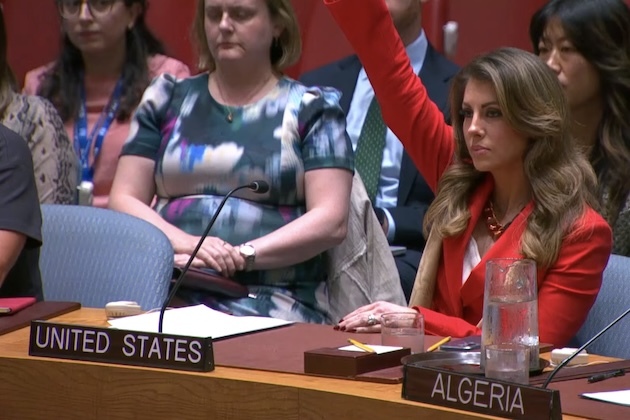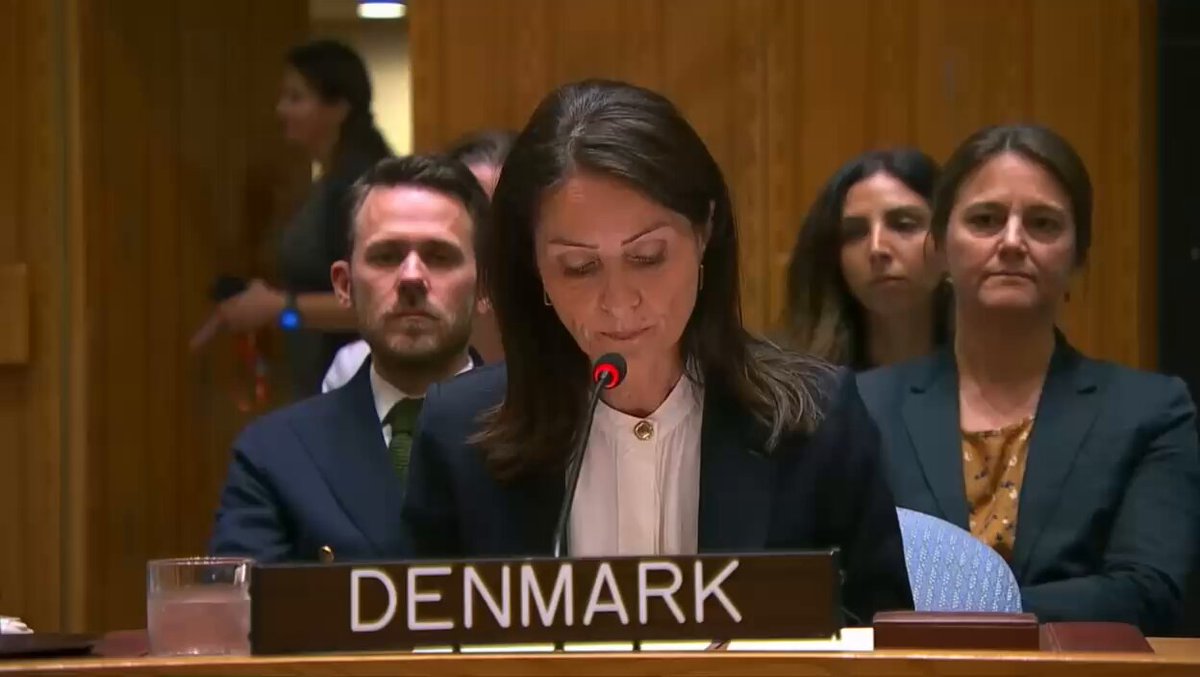Move FM Global News

US Veto Blocks UN Ceasefire Resolution for Gaza
Sep 19, 2025NEW YORK, New York – The chamber of the United Nations Security Council was a study in quiet tension. The polished wood, the horseshoe table, the flags of fifteen nations standing stiffly—it was a theater of diplomacy that had, over eight decades, witnessed both the prevention of catastrophe and its agonizing facilitation. Thursday, on the occasion of its 10,000th meeting, it was poised for the latter.
The air, thick with the scent of old paper and murmured translation, seemed to hold its breath as the South Korean president of the Council for September, Sangjin Kim, opened the session. He spoke of the milestone, a number both “large and significant, like the challenges that remain before us.” He spoke of the 137 nations that had sat in these seats, striving to fulfill a vital mandate: the maintenance of international peace and security.
But the historical weight of the moment was crushed by the immediate, brutal reality of the present. The resolution on the table was stark in its demands: an immediate, unconditional, and permanent ceasefire in the Gaza Strip. It called for the release of all hostages held by Hamas. It demanded Israel lift all restrictions on aid and allow its safe distribution to a population staring down famine.
The vote was a formality everyone saw coming, a script written in the cold calculus of power. One by one, the green lights illuminated on the voting board. Yes. Yes. Yes. Fourteen nations—the ten non-permanent members who had drafted the text, joined by four of the five permanent members, the UK, France, China and Russia—voted in favor. They voted for a halt to the killing of over 65,000 Palestinians. They voted for the return of the 48 hostages still held in tunnels since the horrific Hamas attack of October 7th. They voted for food to reach starving children.
Then, it was the turn of the United States.
Ambassador Morgan Ortagus did not flinch. Her expression was one of practiced resolve. As her veto was registered, a single red light shone on the board, a beacon of impunity that drowned out the fourteen greens. It was the fifth American veto of a ceasefire resolution since the war began.
The silence that followed was not one of shock, but of profound, weary resignation.
Speaking before the vote, Ortagus had already framed the American isolation. Her country’s opposition, she stated, “will come as no surprise.” The resolution, in the U.S. view, was fatally flawed. It did not condemn Hamas. It did not recognize Israel’s right to defend itself. It “wrongly legitimizes the false narratives benefiting Hamas,” she said, narratives that had “sadly found currency in this Council.” It was a familiar argument, one that framed the choice not as one between war and peace, but between justice for one side and justice for the other.
But in the besieged enclave of Gaza, where Israeli forces were at that very moment pressing their offensive to take full control of Gaza City, there was no parsing of diplomatic language. There was only the roar of jets, the collapse of high-rise buildings, and the silent, spreading creep of famine. The veto was not an abstract political tool; it was the locking of a door behind which a humanitarian catastrophe was being allowed to escalate unchecked.
Following the vote, Danish Ambassador Christina Markus Lassen, speaking for the ten nations who brought the resolution, stood firm. Her voice, though calm, carried a sharp edge of defiance. “Even though this resolution was not adopted today at this 10,000th meeting of the Council, 14 members of this Council have sent a clear message,” she declared. “We want to see an immediate and lasting ceasefire, the immediate and unconditional release of all hostages, and the urgent lifting of all restrictions on humanitarian aid. We will continue to work for this for however many Council meetings it may take.”
Her words hung in the air, a promise of return. They would be back with another resolution, and another, until the violence stopped. They would force the United States, meeting after meeting, to stand before the world and use its privileged power to block the will of the international community, to defend its close ally, and to own the consequences.
As the delegates filed out of the historic meeting, the two realities coexisted in stark contrast. There was the UN of grand anniversaries, of reflective speeches on eight decades of striving for peace. And there was the UN of the present, where a single vote could perpetuate a war, where a milestone meeting became just another footnote in a long, grim record of failure. The ten-thousandth resolution had been blocked. The war, and the counting, would continue.




